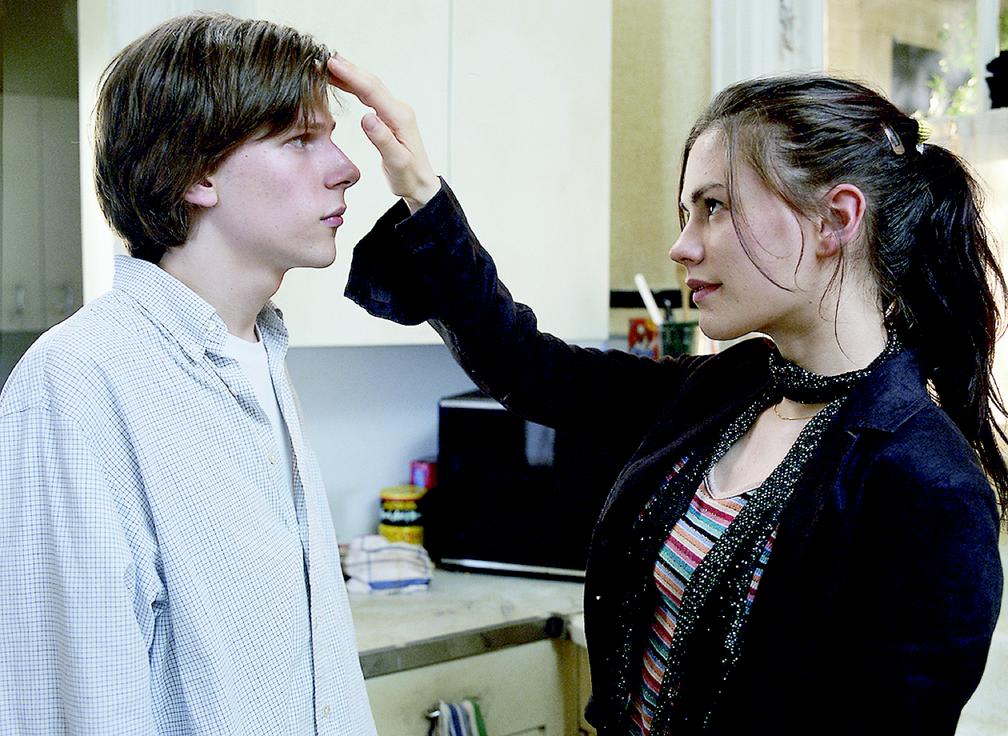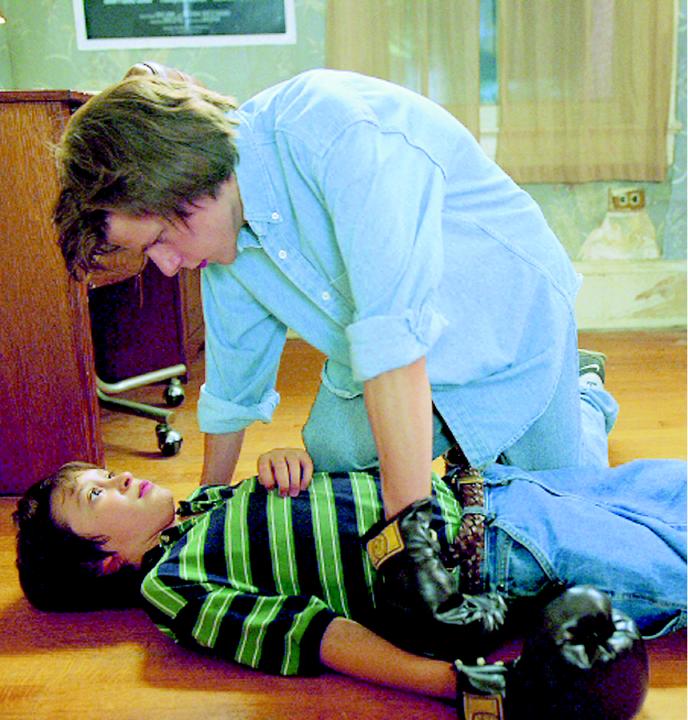Following the age-old adage “write what you know,” filmmaker Noah Baumbach (Kicking and Screaming, Mr. Jealousy) turns to his own troubled childhood to present a fictionalized version of his parents' divorce in the bitterly funny drama The Squid and the Whale. The setting is late-'80s Brooklyn. Bernard Berkman (Jeff Daniels, Something Wild) is a fading old-school intellectual who teaches college writing and can't seem to get any more books published. Joan Berkman (Laura Linney, Kinsey) is a dissatisfied post-hippie housewife who suddenly discovers her own mid-life talent for writing. Caught in the middle of their parents' impending meltdown are young Frank (Owen Kline, The Anniversary Party) and teenaged Walt (Jessie Eisenberg, Roger Dodger).
The Squid and the Whale has much of the same dysfunctional game-playing as Tod Williams' The Door in the Floor and a similar crumbling, upper-middle-class New York feel to Wes Anderson's The Royal Tenenbaums. (No small surprise on the second one since Baumbach helped co-write Anderson's The Life Aquatic and Anderson returned the favor by producing The Squid and the Whale.)
Being civilized, well-educated New Yorkers, the Berkmans go about their breakup with a stiff-upper-lip resolve–even working out a time-share for the family cat. It doesn't take long, however, for the two to start fighting over petty details and using their sons as pawns in an emotional chess match. Dad casually mention mom's illicit affairs, while mom hides books under the kids' beds so dad can't claim them.
“Joint custody sucks,” announces one of Walt's friends, and–indeed–this turns out to be the case. Walt, 16, responds to the growing animosity between his parents by parroting everything his father says–from quoting books he's never really read to calling his mother a “whore.” It's obvious that Walt has chosen sides, engaging in an advanced form of hero worship and regurgitating everything he's heard his father say with no real understanding. (At one point, he calls The Metamorphosis “Kafkaesque.” To which his girlfriend responds, “It's written by Franz Kafka. It would have to be.”) Frank, 10, more or less sides with his mother, but generally blocks out the squabbles by taking up masturbation as a hobby and stealing cans of beer on a regular basis. (Leading to one very uncomfortable parent-teacher conference.)
In a cast that is filled with fine actors, young and old, Jeff Daniels gets the plum assignment, that of the cluelessly pompous college professor who refuses to grasp how much of a failure he's become personally and professionally. Bernard is an alternately scathing/loving portrait of Baumbach's father Jonathan (a once-noted novelist and film critic), one that finds him–by turns–magnificently risible and unforgettably magnetic. Bernard classifies himself as an intellectual (i.e.: “someone who enjoys books and interesting movies”) and brands all others as “philistines.” His constant name-dropping and poor social skills are matched only be his half-assed parenting. (When Walt finally decides he's had enough of his father and wants to go back to mom's house, dad's response is a pathetically hopeful, “We can get you some more posters for your room.”)
Mom, for her part, has chosen this moment to sow her wild oats, picking up a string of boyfriends, including her sons' tennis coach (a hilariously lowbrow William Baldwin). It is to Baumbach's credit that he can see though these characters' pretensions and self-delusions and still view them with sympathy. This is no Who's Afraid of Virginia Wolf? Despite the trauma, you can't help but think these two boys will grow up to be interesting people. Baumbach, after all, wound up writing and directing his first film at age 26.
In the end, The Squid and the Whale is a slightly incomplete snapshot, a nostalgic carousel of slides with a few key ones missing. Mom gets off a hell of a lot easier than dad, and the film's abrupt ending substitutes a rather non-revelatory bit of symbolism for the comfortable closure viewers might reasonably expect. Still, Baumbach has created a family portrait with which a hell of a lot of people can identify. The Squid and the Whale may not be the most hopeful portrait of parenting, but it views its subject with honesty and sincerity and with a bittersweet sense of humor that anyone who has suffered through this thing called life can understand.




